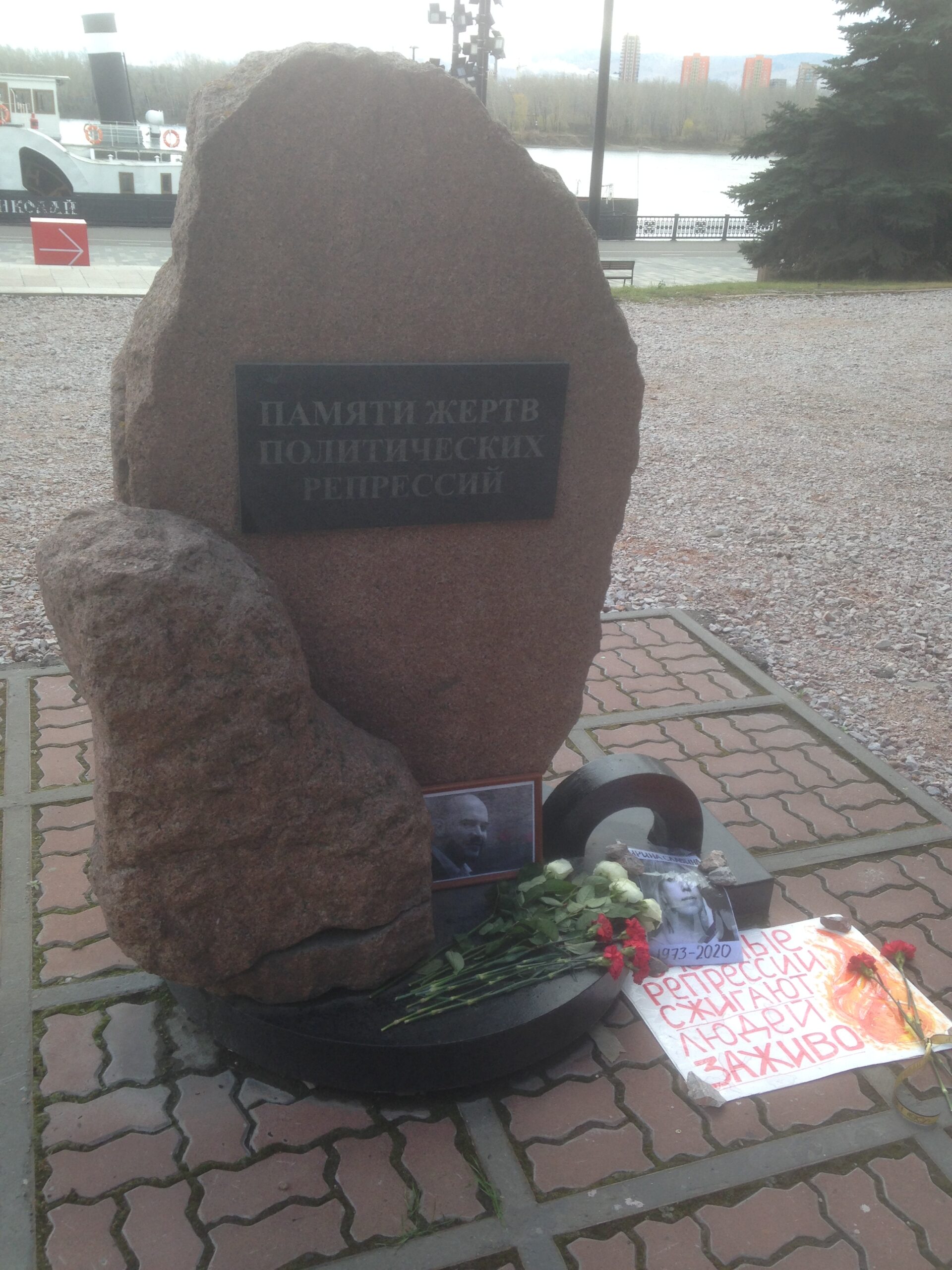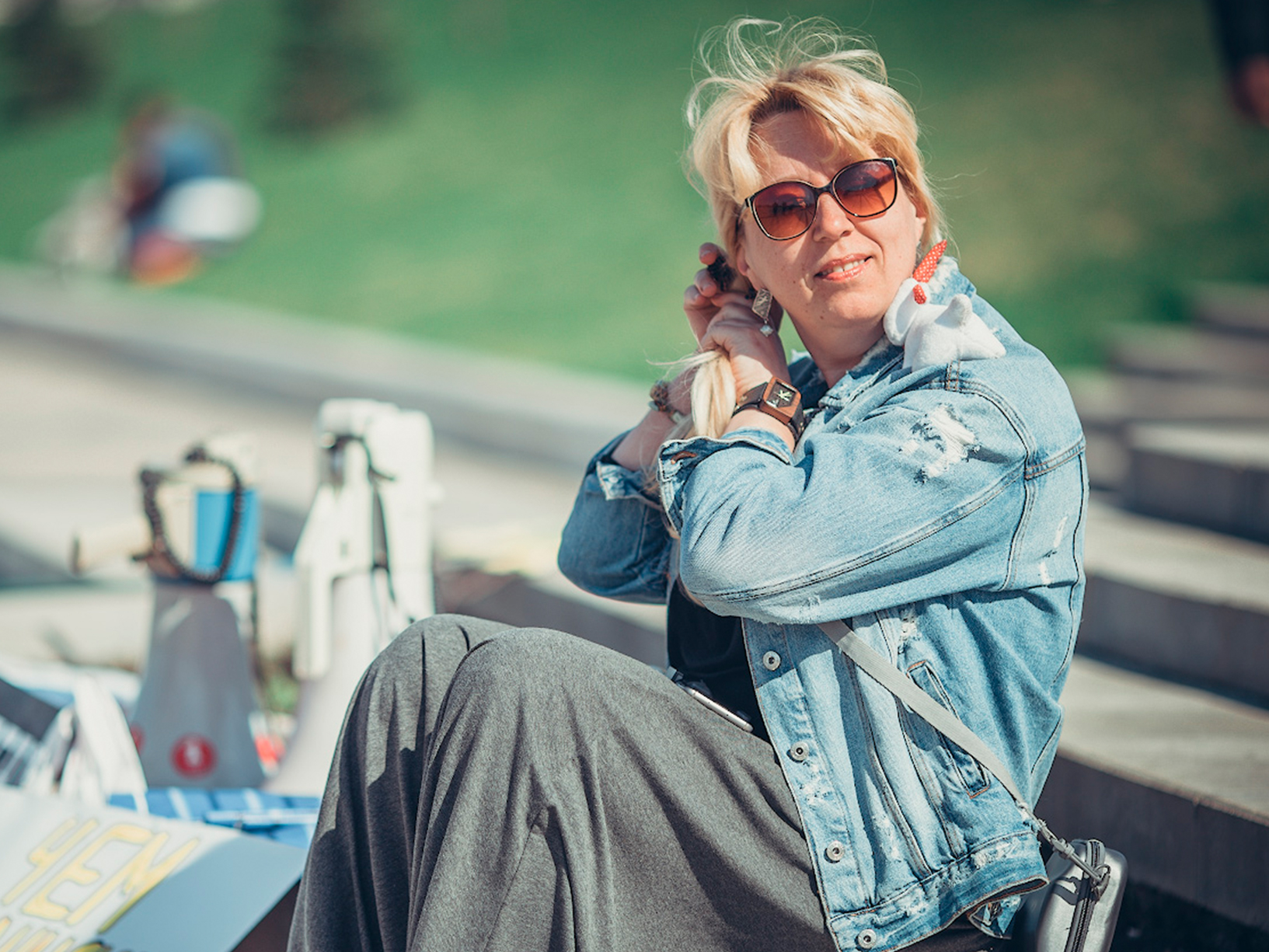Irina Slavina (Real name: Kolebanova) is a Russian journalist and editor-in-chief of the online publication Koza.Press.

Biography
Irina was born on January 8, 1973, in the Soviet Union in the city of Gorky. She studied philology at the institute from 1992 to 1997 and journalism from 2000 to 2003.
After studying, she worked as a teacher of Russian language and literature, and a short time later began her career as a journalist.
From 2003 to 2011 she worked as a journalist for the newspaper “Nizhegorodskaya Pravda”. In 2015 she founded the publication “Koza.Press”.
The act of self-immolation
On 1 October 2020, Slavina’s apartment was searched under an article on the activities of an undesirable organization. Slavina and her husband and daughter were confiscated electronic equipment and all data carriers, after which the journalist was brought in for questioning.
On October 2, 2020, Slavina committed an act of self-immolation in front of the building of the Russian Interior Ministry Department in Nizhny Novgorod Oblast, sitting on a bench near a sculpture. A passerby tried to stop and save her, but she pushed him away. On her Facebook, Slavina asked that the Russian Federation be blamed for her death.
I ask that the Russian Federation be blamed for my death.Irina Slavina wrote on Facebook
The footage shows the rapid burning of clothes and attempts by an unknown man to help.
Russian Free Press cannot publish this footage, as the video is not for the faint of heart.
Public Reaction
On October 2, 2020, a march in memory of Slavina took place in Nizhniy Novgorod. The “Golos” movement in defense of voters’ rights demanded that a criminal case be opened for incitement to suicide. People went out in single pickets in memory of Irina Slavina, they stood with placards saying: “Irina Slavina burned alive because of our indifference” and “Pinpoint repression burns people alive.” People put photos of Iryna Slavina at the Monument to victims of political repressions.

Гроб погрузили в катафалк pic.twitter.com/O1Gzys7vHp
— Тифанюк Григорий (@tifanyukgr) October 6, 2020
— Тифанюк Григорий (@tifanyukgr) October 6, 2020
The Kremlin, represented by Presidential Press Secretary Dmitry Peskov, offered condolences to the family and friends of the deceased.
Vladimir Putin said at a meeting of the Human Rights Council that he did not understand the reasons for Slavina’s suicide.
The European Union mission in Russia expressed its condolences and called on the Russian authorities to investigate the events leading up to her death, including the pressure exerted on her.
The governor of the Nizhny Novgorod region promised to look into the cause.
The deputy head of the Duma committee, Oksana Pushkina, sent a deputy inquiry to Prosecutor General Igor Krasnov and Head of the Investigative Committee Alexander Bastrykin asking them to look into the adequacy and justification of the officers’ actions and the circumstances of the search conducted on Slavina on the eve of her suicide.
Press reaction
Slavina’s self-immolation was reported by Russian media, as well as global media outlets such as CNN, BBC, The Guardian, and others.
Western experts concluded that the persecution of independent journalists in Russia is related to the authorities’ desire to shield themselves from criticism.
This tragedy demands a thorough investigation. The victim’s message is clear. The Russian Investigative Committee cannot simply state that the suicide was not due to the pressure to which the journalist was subjected. If Irina really was just a witness in the Open Russia case, why did the authorities conduct such a brutal search? What was the purpose of that forceful action? We demand clear answers.Ricardo Gurieres. Secretary General of the European Federation of Journalists
On 2 February 2021, the Investigative Committee refused for the third time to open a criminal investigation into the self-immolation of Irina Slavina. Her death was described as a kind of manipulation of society.
On October 1, 2021 memorial actions were announced to take place in Moscow on October 2








